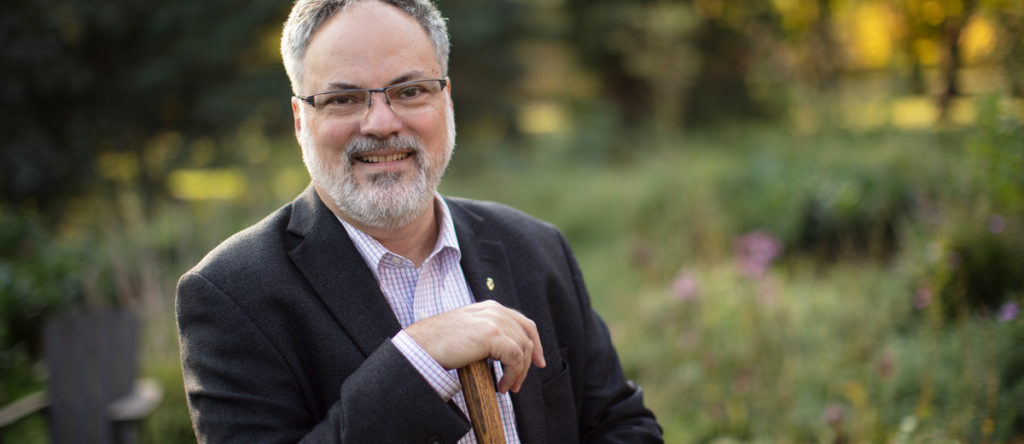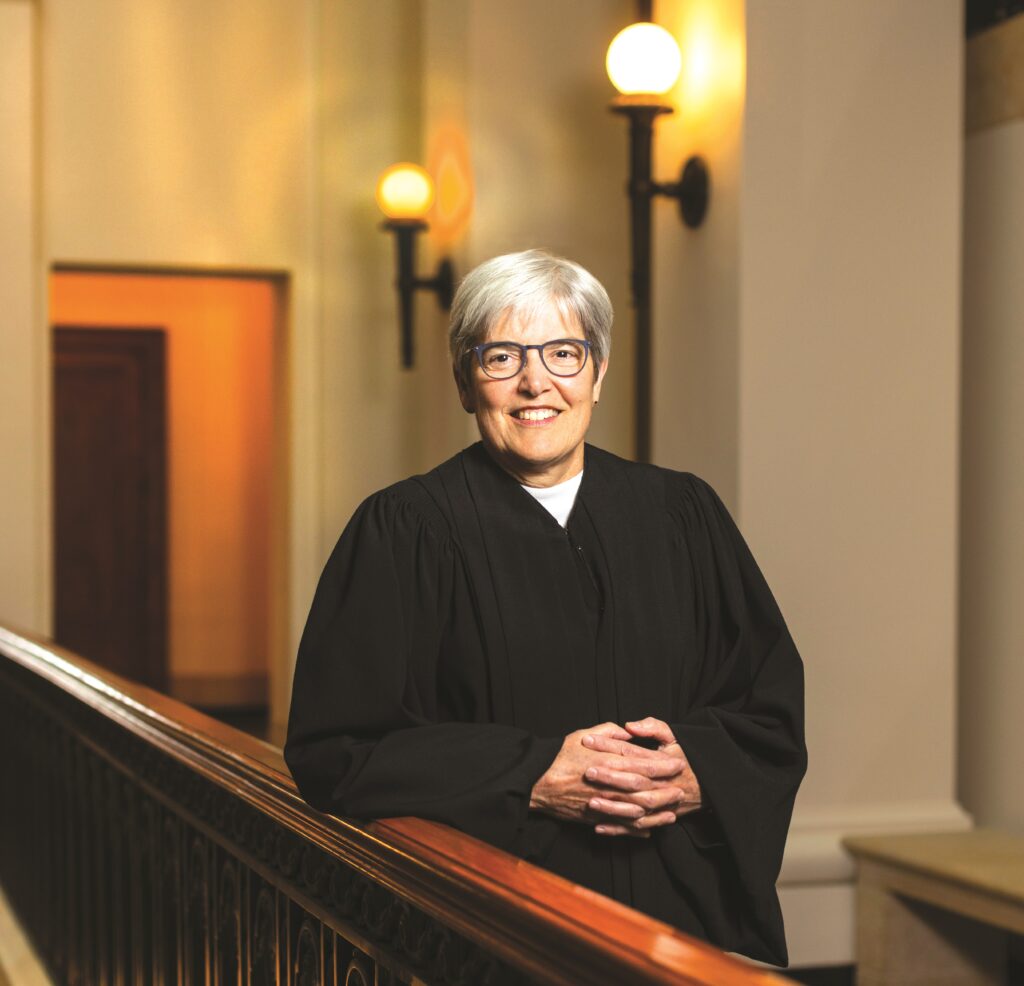Blockchain. In the relatively short time since the concept was introduced, the term has come to mean wildly different things to different people.
To some, blockchain is the desirable promise of a secure, safe, decentralized information system that will completely revolutionize, well, just about everything.
To others, it’s an ominous threat to their career.
To even others, it’s a complete unknown.
Luckily for St. Thomas School of Law students, one of the pre-eminent voices on blockchain in the legal field is ready to teach them and act as a one-man reality check: Professor Wulf Kaal. He is writing a book on the subject and has been researching and teaching students about it for years. His work is laying the educational foundation necessary to address how blockchain will, inevitably, eventually, have a major impact on the legal field.
“The premise and promise of the technology are quite substantial, but we have not seen substantive implementation of what the promise is,” Kaal said, signaling the perplexity of describing blockchain.
Building blocks
What is blockchain, exactly? According to a 2017 article by Kaal, “Legal Education in the Blockchain Revolution”: “A blockchain is a shared digital ledger or database that maintains a continuously growing list of transactions among participating parties regarding digital assets – together described as ‘blocks.’ The linear and chronological order of transactions in a chain will be extended with another transaction link that is added to the block once such an additional transaction is validated, verified and completed. The chain of transactions is distributed to a limitless number of participants – so-called nodes – around the world in a public or private peer-to-peer network.”
In theory, the realization of such a secured, shared digital ledger would be a quantum leap forward in transparency, automation and security across any field. The possible implications in the financial realm have dominated public awareness (think of Bitcoin and, most recently, Facebook’s Libra), but the application of such a shared system could be applied across untold professional fields.
The legal profession “really started picking up on this,” Kaal said, with the introduction several years ago of smart contracts, self-executing agreements between parties completely through code. Smart contracts exemplify the mixed feelings of legal professionals: They represent the possible elimination of major elements of existing jobs (the creation and maintenance of such agreements), but also the potential to create new roles.
Ethical preparation
Kaal’s hope is that, with the proper education and approach to understanding blockchain, people’s reactions will move away from both the jump-in-with-both-feet-and-invest-in-blockchain-right-now enthusiasm, and the-sky-is-falling pessimism of automation replacing all human legal jobs. Instead, he hopes people will lean toward a middle ground of creating the infrastructure so blockchain can actually exist, as well as maintaining the human-forward nature of business afterward, will require countless workers. In all that, ethics must rule, Kaal said.
“Creating decentralized, ethical systems is where we should all focus our attention,” Kaal said. “We know this is coming; it’s inevitable. How do you set this up in a moral and ethical way that’s sustainable?”
Plenty of opportunity exists for St. Thomas Law students to contribute to that process, since Kaal described the infrastructure of blockchain as only in its infancy stage. It needs three key components: “First, you need a decentralized legal solution that allows people to use decentralized protocols for legal certainty. We don’t have that. Second, you need a fully decentralized public blockchain. We don’t have that. … Third, you need a decentralized insurance policy that people know they would have a payout if things go wrong. We don’t have that.”
To help students better understand the distance between where blockchain is and where it could be, Kaal uses the metaphor of building a bridge across an isolated stretch of river.
“You cannot build this bridge, this decentralized infrastructure in the legal commerce, unless you can get all the resources, the metal, the nails, the tools, to the river to build it. To get all that there you need a gravel road. We don’t have the gravel road yet,” he said.
Education is one of the main components of that gravel road, and many St. Thomas students have found themselves leading others when they realize none of their colleagues have learned about blockchain.
“The turnaround has been very quick: Some of my students are already teaching their colleagues,” Kaal said. “That’s very rewarding.”
Active contributors
As awareness and education spread, Kaal hopes more legal professionals take active roles in the creation of all three of the aforementioned missing factors of building the blockchain infrastructure.
Kaal’s students learn to code, helping build some fluency in the nuts-and-bolts creation of what goes into the blockchain system. More complex, perhaps, is the seismic shift necessary for legal and insurance protocols, which will require completely new ways of thinking beyond current partnership laws.
“We’ve done that since the industrial revolution: Just tweak the law. I’m not sure that’s going to be the case with this iteration of technological evolution,” Kaal said.
There’s more than tweaking to be done across all the elements of building the blockchain infrastructure and its supporting legal elements. Kaal is optimistic about the role legal professionals will have in building it, and in the field once blockchain is actually realized. That optimism is rooted in the innate need for human beings across the legal landscape.
“The thought process of, ‘We’re taking humans out, making it better,’ is not how business works. Business has humans in it. Business necessitates trust, morality. You cannot expect people to engage with you and create smart contracts in a decentralized system if you hide behind the automation,” Kaal said. “That’s a flawed business solution. People, morality, ethics – all have to continue to be at the forefront.”
For that to be the case, legal professionals need to be part of building an ethical blockchain and continue to help people manage legal issues within it. For Kaal and others wading more deeply into the world of blockchain, the next step is obvious: Let’s get to it!







